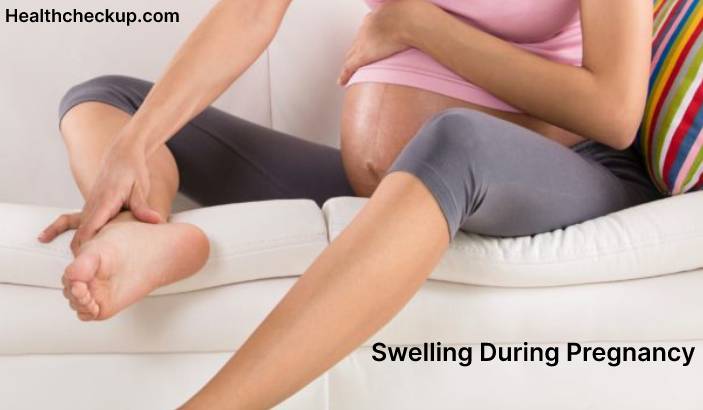Swelling, also known as edema, is a common symptom during pregnancy. It occurs when excess fluid accumulates in the body’s tissues, causing swelling in the hands, feet, and ankles. While mild swelling is normal during pregnancy, severe or sudden swelling can be a cause for concern. In this article, we will discuss when swelling during pregnancy should be a concern.
- Sudden or severe swelling: If you experience sudden or severe swelling, especially in the face, hands, or feet, it could be a sign of a serious condition called preeclampsia. Preeclampsia is a serious complication of pregnancy characterized by high blood pressure and protein in the urine. It can occur anytime after the 20th week of pregnancy and can be life-threatening for both the mother and baby if left untreated. Other symptoms of preeclampsia include severe headache, abdominal pain, shortness of breath, and blurred vision. If you experience any of these symptoms, it is important to contact your healthcare provider immediately.
- Swelling in only one leg: If you experience swelling in only one leg, it could be a sign of a blood clot. Blood clots can occur during pregnancy and can be life-threatening if left untreated. Other symptoms of a blood clot include pain, redness, and warmth in the affected area. If you experience any of these symptoms, it is important to contact your healthcare provider immediately.
- Swelling accompanied by other symptoms: If you experience swelling along with other symptoms, such as fever, vomiting, or difficulty breathing, it could be a sign of an infection or other serious condition. It is important to contact your healthcare provider if you experience any of these symptoms.
- Swelling that does not go away: If you experience swelling that does not go away after resting or elevating your feet, it could be a sign of a more serious condition. It is important to contact your healthcare provider if you experience persistent swelling.
- Stay hydrated: Drinking plenty of water can help flush excess fluid out of your body and reduce swelling.
- Elevate your feet: Elevating your feet above your heart can help reduce swelling by promoting the flow of fluid away from your feet and legs.
- Wear comfortable shoes: Wearing shoes with low heels and good support can help reduce swelling in the feet and ankles.
- Avoid standing for long periods of time: If you must stand for long periods of time, take frequent breaks to rest and elevate your feet.
- Avoid tight clothing: Wearing tight clothing, especially around the waist and legs, can restrict blood flow and contribute to swelling.
- Exercise regularly: Exercise can help improve circulation and reduce swelling. It is important to consult with your healthcare provider before starting any exercise program during pregnancy.
- Eat a healthy diet: A diet rich in fruits, vegetables, and whole grains can help reduce swelling. It is important to avoid foods that are high in salt, as sodium can contribute to swelling.









